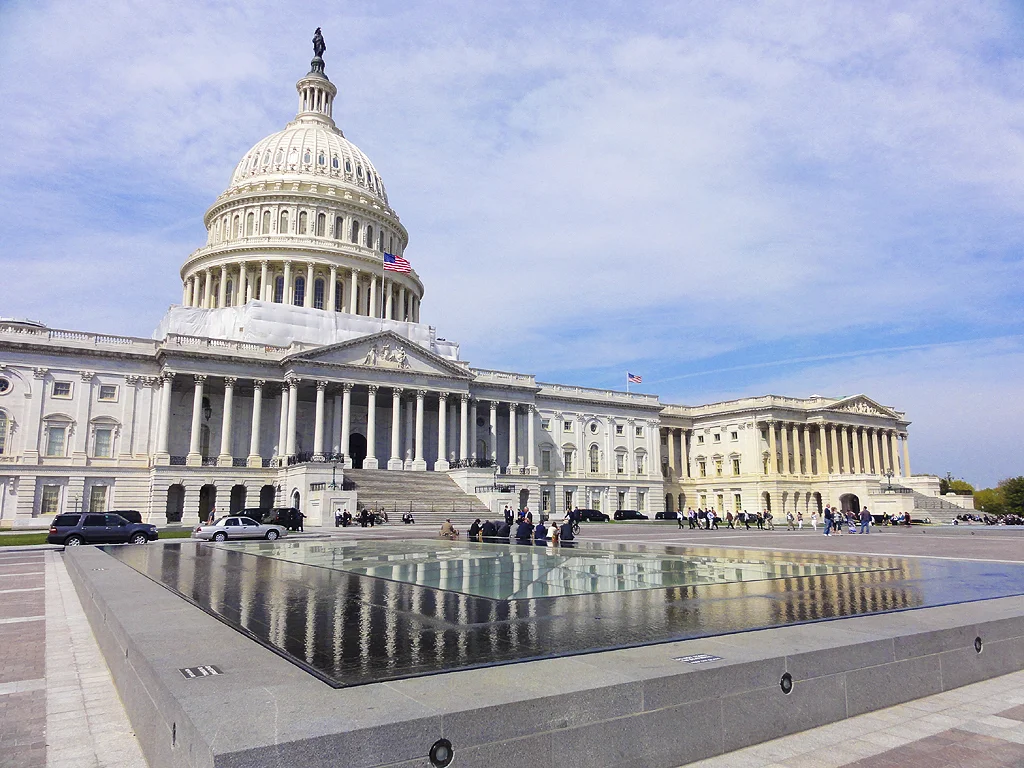In order to take stock of our first three years and our first three classes of fellows, early this year we commissioned an independent evaluation of our work, thanks to a generous gift from the Ford Foundation.
What follows is a guest blog post from our evaluator, David Shorr, about his findings. You can read the full evaluation here.
After selecting and placing the first three classes of fellows, Travis had some questions he wanted to investigate through an evaluation. Mainly he wanted to know what are the keys for fellows to really contribute to the work of the offices hosting them. As TechCongress strives to show Members the value of technological expertise, of course it wants to make sure fellows are as helpful to them as possible.
Some of the most interesting questions flowed naturally from rudiments the Innovation Fellowship shares with other similar initiatives. The basic idea of such programs is to shunt a modest slice of mid-career professionals off from their normal career track to spend a year in the national legislature. This presents two built-in challenges. One is to bridge the gap between the the technologists' own professional world and this unfamiliar realm of government and policymaking. The second problem is the time constraint of a one-year assignment, compared with permanent staff members.
This evaluation project was an opportunity to hear the experiences of fellows from the Innovation Fellowship's first three classes as well as the senior Hill staffers who supervised them—in all, ten fellows and seven supervisors. We wanted to know, what do technologists and congressional staffers and Members get and learn from one another? And given the time crunch of a one-year term, what are the secrets for fellows to climb the learning curve and become productive team members as quickly as possible?
To give structure to the evaluation findings, I used a classic synopsis of congressional staff work: the ‘Three Ps’ of Process, Policy, and Politics. Under the heading of ‘Process,’ I looked at the legislative tradecraft that the Innovation Fellows have used and the learning curve for their fellowship year. The findings on ‘Policy’ discuss the public interest technology field-building challenge in Congress—the appetite on the Hill for technology policymaking and the intercultural encounter between technologists and lawmakers. The third category of ‘Politics’ deals with a question we asked about the partisan political overlay on technology policy and the work of fellows.
Of course you should read the whole thing, but meanwhile let me highlight a couple key findings. First of all, it takes less time than you'd think to start moving up that learning curve. While I did hear predictable observations about fellows really hitting stride at the end of a year, the fellows and supervisors talked about the initial learning-the-ropes period as an opportunity to build substantial capability very quickly. As long as fellows focus on the right things, they'll be able to assume more responsibility within just the first month or two.
The point is to clue-in right away into the types of tasks being done in the office. The constant interchange among staff and the tasks they perform offer cues for the ways that staffers actually work on issues—as opposed to fantasies about the glamorous stuff (‘talking to the Senator every day’ is an oft-cited fantasy). To put it another way, acculturating to congressional staff work isn't really a process of paying dues but instead is about grasping what things are practical or not.
Our evaluation interview protocol opened by asking the fellows and supervisors about the interests on the part of a Member / office that originally spurred the decision to host an Innovation Fellow. We wanted to know if there are certain issue areas that exert a stronger pull on Members or senior staff. This was the evaluation’s dog that didn’t bark. On the contrary, the notion of technological change posing pervasive policy challenges was the most consistent unprompted idea in the entire evaluation. Three fellows used the same words verbatim—“Tech touches everything”—and two more fellows as well as six of the seven supervisors paraphrased this notion.
When you boil it down, this project peered into the encounter between two professional cultures. Hopefully the resulting insights will not only help improve the fellowship experience but also contribute toward TechCongress' broader aims. As funders and grantees work to build the field of public interest technology, clarifying the role of tech expertise in policymaking can help them establish strong cohorts of technologists in Congress and other policymaking institutions.
Following a career in senior roles with many of the policy community's philanthropies, think tanks, and advocacy groups, David Shorr set up a consulting practice focused on organizational strategy, effectiveness, and evaluation.
